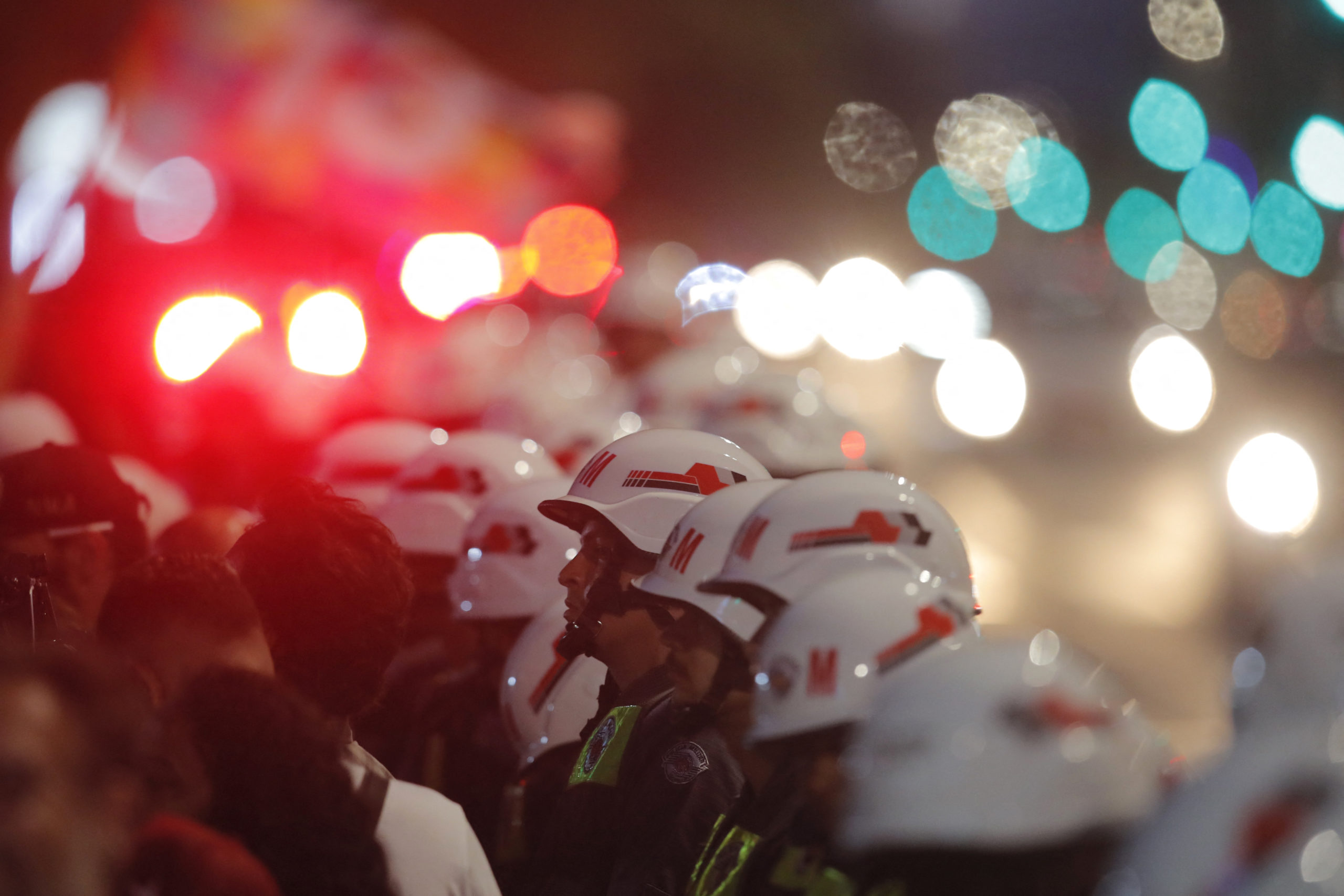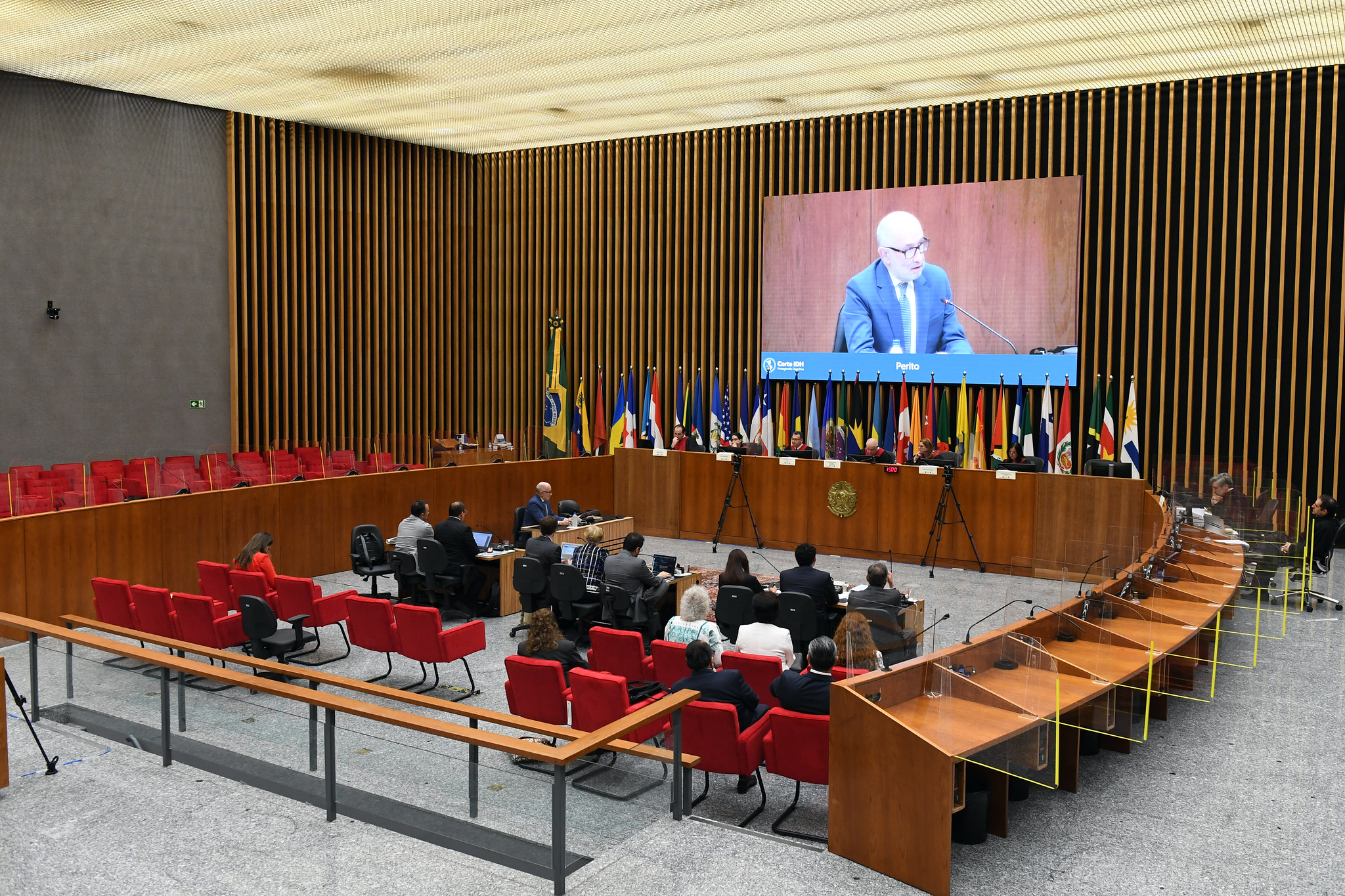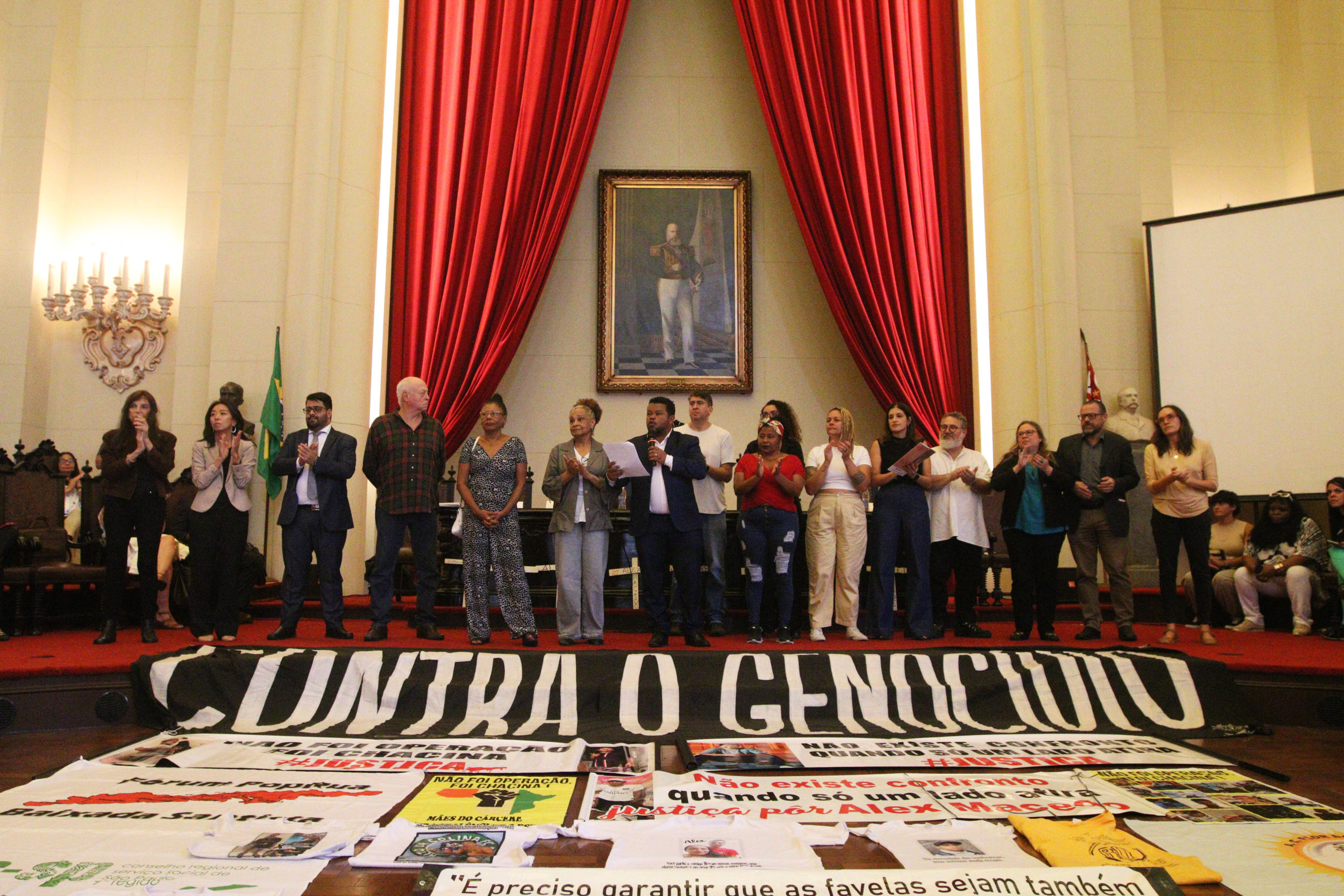Lawmakers against youth
24h after blocking the reduction of the age of criminal responsibility, Lower House shifts position and approves bill in first round
.jpg) The Lower House of Congress approved yesterday in the first round of voting, by 323 favorable votes, an amendment to Constitutional Amendment 171/1993 that lowers the age of criminal responsibility from 18 to 16. A similar bill had been rejected by the same house less than 24 hours earlier. Between the two votes, 24 lawmakers who had either abstained or voted against the bill changed their minds. The text still needs to be approved in a second round by at least 308 votes to proceed to the Senate.
The Lower House of Congress approved yesterday in the first round of voting, by 323 favorable votes, an amendment to Constitutional Amendment 171/1993 that lowers the age of criminal responsibility from 18 to 16. A similar bill had been rejected by the same house less than 24 hours earlier. Between the two votes, 24 lawmakers who had either abstained or voted against the bill changed their minds. The text still needs to be approved in a second round by at least 308 votes to proceed to the Senate.
Click here to see the list of lawmakers who voted against the bill in the first round.
“There are two questions at stake: the merit of the bill and the way the procedure was handled, which was definitely questionable,” said Marcos Fuchs, associate director of Conectas. According to lawmakers who opposed the vote yesterday, the president of the Lower House, Eduardo Cunha, violated the rules by voting the amendments before the original bill.
“Regarding the merit, we can say that we have witnessed a serious historic error. Not only because the facts indicate that reducing the age of criminal responsibility is entirely ineffective and counterproductive in solving our social problems, but because it is incompatible with the constitutional values and the international rules and responsibilities that the country should respect. The 323 members of congress who voted for the bill are the persecutors of a youth that has been abandoned by the Brazilian State.”
Click here to read the myths and truths behind the proposal to lower the age of criminal responsibilty.
The amendment approved yesterday differs from the bill that was rejected the day before on just one point: it shortens the list of crimes for which the reduction of the age of criminal responsibility applies. Now, according to the new text, adolescents older than 16 will be tried as adults only when they are involved in heinous crimes, intentional homicide and bodily injury. Young people who commit these crimes currently total nearly 14% of all those in youth detention centers in the country.
Human rights organizations working on the issue rejected the maneuver and the new version of the text. “Our opposition to the proposed amendment to the Constitution is not, nor can be, contingent and variable as the list of crimes included in it,” he said in a public notice the Criminal Justice Network, of which Conectas is part. “The PEC 171/1993 should be fully challenged by admitting as anti-crime strategy innocuous retribution and was approved the trampling of regimental procedures that guarantee transparency and participation, constitutive features and inelimináveis of a democratic regime.”
Click here to read the complete public notice.
One of the provisions of the new text is for special facilities to be built to cater to this group of 16 to 18 year olds. “This is also debatable. I have been visiting prisons for years and I know from experience that the system does not respect the differences established by law. It is common, for example, to see pre-trial detainees held together with convicted prisoners, and women serving sentences in the same prison as men. Why would anything be different for these adolescents?”
It is also alarming that the lawmakers who voted for the proposal justified their votes on the alleged support of society for the reduction of the age of criminal responsibility. “Democracy is much more than respecting the will of the majority. The representatives of society have the duty to guarantee the rights of the minority and the State should act to uphold the law even when it is unpopular. Disrespecting this principle is a serious affront to the country,” added Fuchs.
Today, children and adolescents older than 12 can already be held accountable and detained for up to three years. Data from the Brazilian Public Security Forum reveal that there were 20,532 detained children and adolescents in Brazil in 2012. More than half (51%), according to figures from Ipea (Applied Economic Research Institute) released in June, were not attending school or working when they committed the crime. And nearly 66% of them were from extremely poor families.


